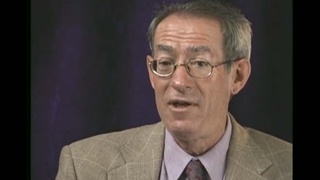Interviews
Interned at age fifteen, I saw camp as an adventure
At fifteen, I think the thing was more of an adventure. I think that different people at different ages had different reactions, but for me at fifteen, it was sort of an adventure. What was going to happen next? [At] fifteen you know you’re invincible. You could do anything, so . . . I don’t recall any negative experience, at least initially. I think that set in later. No one realized that there would be no school until—well we didn’t know, but there was no school until the fall, but we were right in the middle of school. So that left a big void. And of course, there wasn’t really anything to do. That was one of the biggest problems.
Date: June 12, 1998
Location: California, US
Interviewer: Darcie Iki, Mitchell Maki
Contributed by: Watase Media Arts Center, Japanese American National Museum









